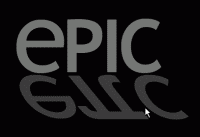Joshua fit dah battle of Jericho…
 |
I’m just printing out a finished copy of my last assignment for my current course. Don’t get too excited, I still have an exam to write! But it’s nice to have this one done. I wrote about Tell es-Sultan. What?! Tell es-Sultan is an archeological dig of Jericho. It was my job to sort through all the digs and find out what evidence there is for the famous battle in Joshua 6. As I was just finishing, out of the hundreds of songs my computer could have chosen to play, it started playing “Joshua fit dah Battle of Jericho”. Weird.
In the end, in case you’re interested, Jericho is a mystery. There is no wide agreement about which city, if any city, Joshua encountered. According to the prevailing view among archaeologists, either there was no city or there was only a small village. But for those of you who were about to throw up your hands in despair, don’t panic! There are actually several theories that would explain the findings in a way that would fit perfectly with the biblical history.
There are actually walls there that fit very well, there’s just a disagreement over how to date them. These impressive double walls (Jos 6:1) that researchers have found fell outwards, filling a ditch around the city. That would have made it easy for invaders to go up the hill into the city itself (Jos 6:20). There were houses found built up against the wall between the two walls (Jos 2:15). Strangely, the invaders left that large amounts of grain that were in the city, indicating that it was likely harvest time (Jos 3:14), a short siege (Jos 6:15), and a strange army that did limited looting (Jos 6:24)! Jericho was then destroyed by fire (Jos 6:24). Yes, you can tell all that with a little careful digging!
So, were these Jericho’s walls? Well, that’s the question. But if so, it sure fits doesn’t it? If I had to guess, I’d say these were them. But there are other possibilities. If you’re really curious, I can send you my paper! 😎
My exam will Lord willing be on Thursday, after which I can start on my next course (ah, this is the life, isn’t it?). But it really has been good studying Joshua, Judges and Ruth. There are a lot of great lessons in there, especially for Christian leaders in this day and age (if you meet any, tell them to go and read Joshua, Judges and Ruth! Especially Judges).



 A few years ago I remember reading that the latest trend was “mass customization”. In other words, instead of everyone having something alike, ie mass production, modern technology was making it easier for people to quickly and cheaply get customized things, such as clothes. Of course, in my opinion this customization is rather deceptive, because you usually still have a very limited number of choices, even though the choices are greater than they were before.
A few years ago I remember reading that the latest trend was “mass customization”. In other words, instead of everyone having something alike, ie mass production, modern technology was making it easier for people to quickly and cheaply get customized things, such as clothes. Of course, in my opinion this customization is rather deceptive, because you usually still have a very limited number of choices, even though the choices are greater than they were before.